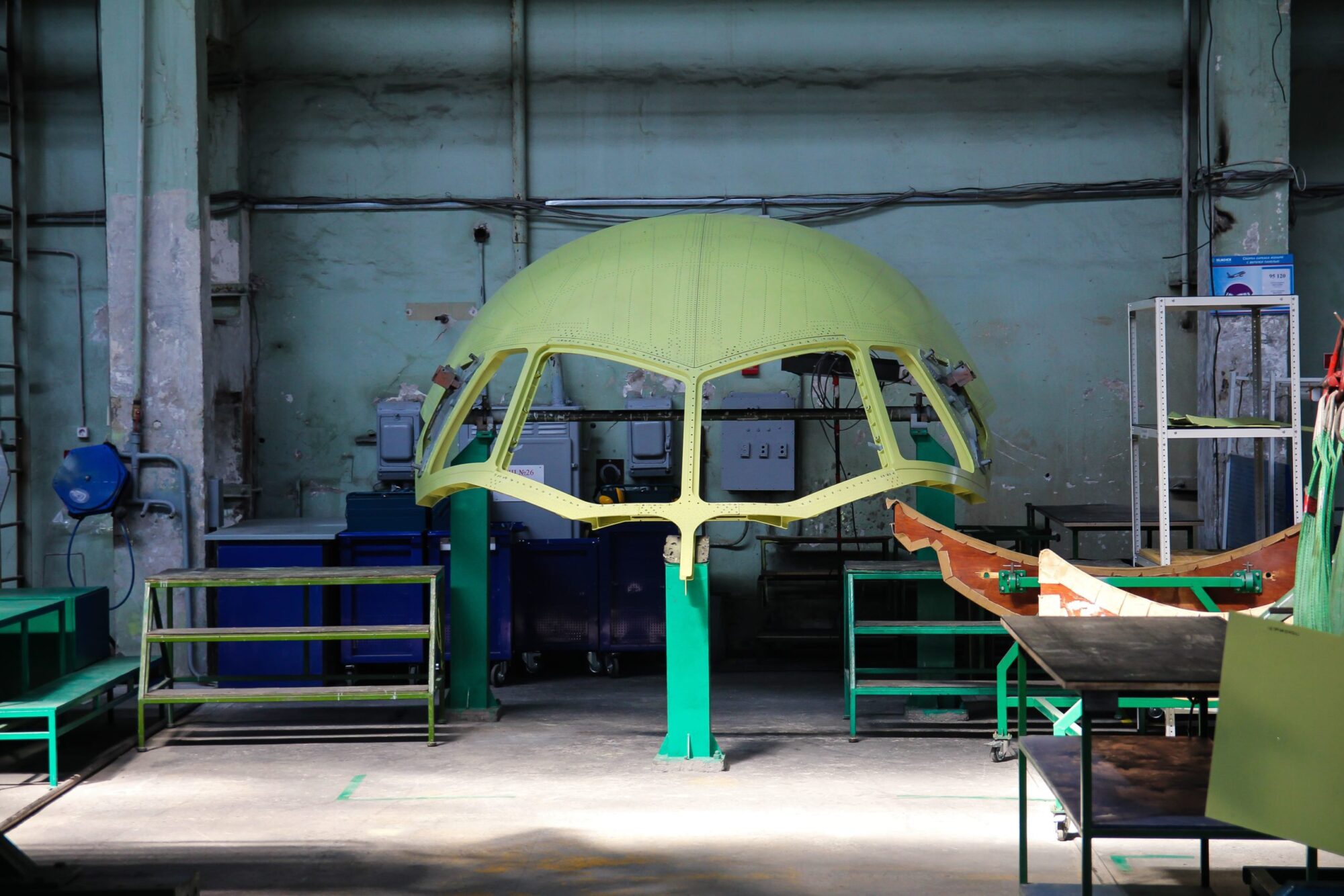How do you build an intelligent, trusted supply chain?
Posted 10 May 2022
How do you build an intelligent, trusted supply chain?
In a multiparty, hierarchical supply chain within the highly regulated aerospace industry, how do you ensure product consistency and quality, control costs and make sure everything works smoothly and efficiently without compromising on safety and privacy? How do you fortify the UK’s aerospace manufacturing sector to withstand global shocks? And how do the latest emerging technologies help solve these challenges?
According to a recent report from BEIS, the UK’s share of the global aerospace supply chain is in decline, driven by the failure of many UK suppliers to achieve globally competitive standards of costs and performance. Combined with the severe impact of the COVID-19 pandemic on the aerospace industry at large, there is an increasingly urgent need to apply emerging technologies within the industry’s large and dynamic supply chain to combat rising costs and boost efficiencies to ensure that one of the UK’s largest employment sectors can remain globally competitive.
Complex and interlinked network
Although the phrase ‘supply chain’ brings to mind a linearity in suppliers, there are, in fact, systems of multiple and bidirectional interdependencies between organisations within a network. This network of connections creates huge problems for the flow of data, for verification and certification of parts (for example), and creates multiple points of risk. In the UK aerospace sector alone there are thousands of companies, a large proportion of which are small businesses, supporting hundreds of thousands of jobs.
A problem at one critical point can seize your entire supply chain. There often isn’t only one supplier for the thing you need, but if something happens to that verified supplier which is an integral part of your supply chain, how do you rapidly switch over to an alternative to plug the gap, before switching back to the original supplier once they have improved their process or fixed whatever problems they had? How do you account for, and mitigate against, any adverse impacts that might have?
Advanced digital technologies like the internet of things (IoT), 5G, artificial intelligence (AI), and distributed ledger technologies (DLT) such as blockchain are all offering practical solutions and playing an increasingly important role in helping to both reinforce these complex supply chains and develop completely new and more resilient models.
The INTELI project
INtelligent TrustEd SuppLy ChaIn (INTELI), led by BAE Systems and including Digital Catapult, Maher and Accenture, Intellium AI, Codegate and the MTC, is one such project. The INTELI consortium is looking at how to achieve a 20% reduction in supply chain costs through improved efficiencies using DLT, IoT and AI to improve additive manufacturing processes for high value aerospace components.
First and foremost INTELI is about understanding the real-world value of DLT and how it can have tangible impact and benefits in a highly regulated supply chain. It will allow decision making in real-time and provide a network operating system so that multiple parties in the supply chain can access the data they need, where all interactions between parties are trusted, transparent, verified and – importantly – because they sit on a distributed ledger, unchangeable.
Take a clear example from INTELI. BAE and Maher (one of their major suppliers) agree on how to build a particular aircraft component months or years in advance. BAE requests Maher supply a new set of landing gear and they appropriately distribute out sub-orders to a set of their approved suppliers to manufacture the individual parts and send them on to be assembled by Maher at a later date. Each of these parts is tested, verified and certified, proof of which is passed back up the chain to the original manufacturer and purchaser to prove everything is in order.
This is a fixed, tried and tested process. But the real problem with this system is that there are a lot of disintegrated elements that do not communicate with each other easily. Data sits in silos and is not available to others in the supply chain, so the idea to try to optimise a process across all of these points just doesn’t exist. The entire verification process is retrospective, manual, and paper based. As is certification.
Decentralised or centralised solutions
We’re taking just a small part of the aerospace industry supply chain, and we’re attempting to digitise the steps involved in the critical path to improve the trustworthiness of the entire process, by making data available and consistent, and by ensuring true visibility of live processes so that the certificate no longer becomes of piece of signed paper, or a stack of signed papers, it becomes a digital logbook with a trackable and traceable history so you can see exactly what the process was from start to finish.
Centralised solutions are all around us today in the form of software as a service. Historically, BAE, Maher and lots of other supply chain partners have purchased the tool that they need for their business, but as soon as they start needing to think beyond the company borders – such as data exchange for visibility, live tracking and so on – these centralised, siloed solutions just don’t work.
Digital Catapult’s role
We want to break down those barriers between organisations. The solution we’ll develop as part of the INTELI project will be a highly redundant system that allows for critical data from multiple partners to become corrupted and yet, the users will still be able to reconstruct the true history of the underlying dataset. This sort of system is more tamper-evident so you can see who has input what data at what time, and allows for live tracking so you can see if there was a glitch in the machine, track it down much more easily and fix the problem.
For Digital Catapult, INTELI is building on a previous project we undertook within the aerospace sector called VITALam. The output from VITALam is providing the basic distributed ledger and distributed filestore infrastructure for INTELI – we’re now extending the functionality of this solution for additive manufacturing in aerospace. At the end of the INTELI project we want the product that has been developed to be open source so anyone can use it.
Digital Catapult is working closely with Accenture, another collaborator on the DLT aspect of the project, with one of Accenture’s DevOps engineers joining the Digital Catapult distributed systems team to learn from and collaborate more closely with us. We’re delighted to offer support in this way, helping to exemplify our position as a leader in the field of applied DLT.
But the challenge remains that we need to figure out how aerospace businesses would use and manage a common data communication and tracking platform in everyday practice. How does it change their business model? And how do you govern these systems when you need to grow your network? We’re looking forward to seeing how the project develops over the next year and finding answers to these challenges.
If you’re interested to find out more about Digital Catapult’s distributed systems technologies work, click here.



